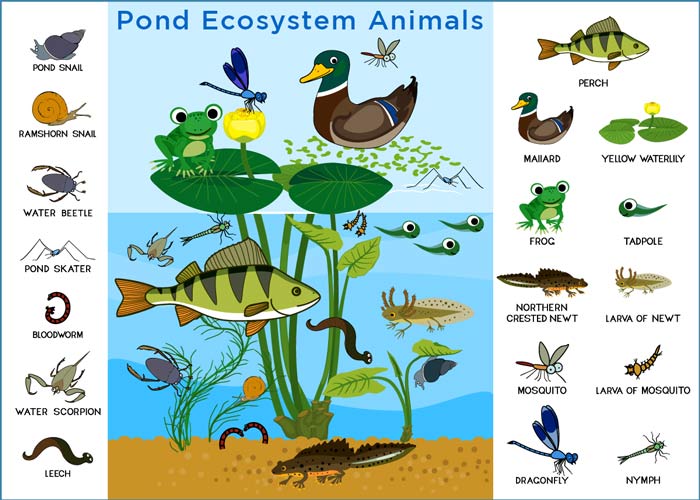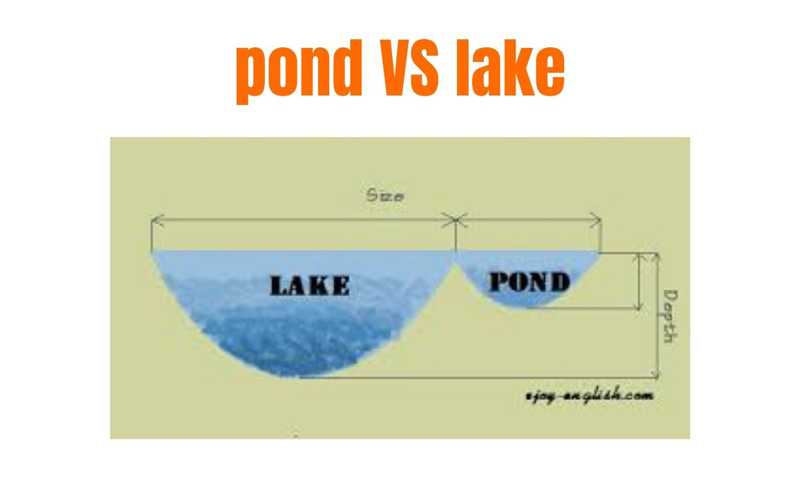Have you ever taken a moment to gaze into a pond and wonder about the bustling ecosystem that exists beneath the tranquil surface? Ponds are teeming with life, from tiny microorganisms to larger aquatic creatures, each playing a vital role in the delicate balance of this aquatic habitat.
The Diversity of Life in Ponds
Ponds are home to a wide variety of organisms, each uniquely adapted to thrive in this watery environment. Let’s take a closer look at some of the fascinating creatures that call ponds their home:
1. Microscopic Organisms
At the base of the pond’s food chain are microscopic organisms such as algae, protozoa, and bacteria. These tiny creatures play a crucial role in nutrient cycling and are essential for maintaining water quality in the pond.
2. Aquatic Plants
Plants play a vital role in the pond ecosystem by providing oxygen, food, and shelter for other organisms. Common pond plants include water lilies, cattails, and duckweed, each contributing to the overall health of the pond ecosystem.
3. Insects And Arthropods
Ponds are bustling with insect life, from dragonflies and damselflies to water beetles and mosquito larvae. These creatures serve as a food source for larger animals and play a crucial role in pollination and nutrient recycling within the pond.
4. Fish
One of the most iconic inhabitants of ponds is fish. Common pond fish species include carp, catfish, and goldfish. Fish play a key role in controlling insect populations and keeping the pond ecosystem in balance.
5. Amphibians
Frogs, toads, and salamanders are often found in and around ponds. These amphibians rely on ponds for breeding and provide natural pest control by feeding on insects and other invertebrates.
6. Reptiles
While less common, some reptiles such as turtles and snakes can also be found in ponds. These creatures play a unique role in the ecosystem and contribute to the overall biodiversity of the pond habitat.

Credit: www.earthreminder.com
The Importance of Pond Ecosystems
Pond ecosystems are not only fascinating to observe but also play a crucial role in maintaining environmental balance. Here are some reasons why pond ecosystems are important:
- Provide habitat for a diverse range of organisms
- Contribute to nutrient cycling and water purification
- Support pollination and seed dispersal
- Enhance biodiversity in the surrounding area
- Offer recreational and educational opportunities for humans

Credit: www.pinterest.com
Conservation of Pond Ecosystems
As human activities continue to impact natural habitats, it is essential to take steps to conserve and protect pond ecosystems. Here are some ways to help preserve these valuable aquatic habitats:
- Avoid pollution by properly disposing of waste
- Plant native vegetation around ponds to prevent erosion
- Limit the use of chemicals that can harm aquatic life
- Support local conservation efforts and initiatives
- Participate in pond clean-up events and volunteer programs
Conclusion
Ponds are not just bodies of water; they are thriving ecosystems teeming with life. By understanding and appreciating the diverse organisms that inhabit ponds, we can work towards preserving these valuable habitats for future generations to enjoy.
Next time you come across a pond, take a moment to appreciate the intricate web of life that exists beneath the surface, and remember the vital role that each organism plays in maintaining the health and balance of this unique ecosystem.

